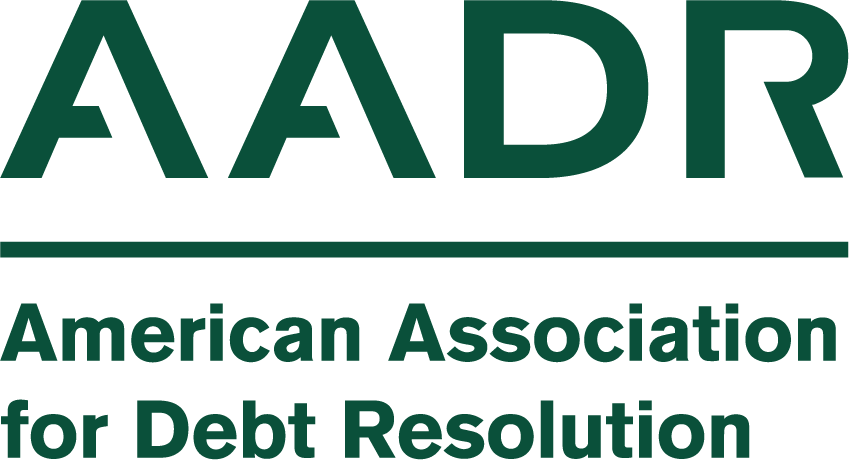By Denise Dunckel Morse
Financial literacy matters. The experiences of our neighbor country to the north illustrate why. In Canadian schools, financial literacy lessons are incorporated into a variety of subjects. The result? According to economist Raj Chetty, a young person born in Canada is twice as likely to move up the income spectrum as a child growing up in the United States.
Financial literacy will not solve income inequality, but embedding economics and personal finance lessons in school curriculums will give more American families the chance to live a life free from debt.
This vision for a better future is why the American Association for Debt Resolution (AADR) partners with and supports the Council for Economic Education (CEE), a national nonprofit whose mission is to equip K-12 students with the tools and knowledge of personal finance and economics they need to make better decisions for themselves, families, and communities. This year, AADR and its member companies have pledged to raise $100,000 for CEE. (Support that effort by clicking here.)
To mark Financial Literacy Month and explain the urgent need for personal finance and economics education in U.S. schools, AADR welcomed CEE Chief Development Officer Dan Delany and CEE Chief Program Officer Christopher Caltabiano for a webinar. (Watch the full webinar here.) The event was moderated by Dan Frazier, CEO of Century Support Services and chair of the AADR Executive Board of Directors.
Changing the lives of 50 million children
In the United States today, 40 percent of adults have less than $300 in savings. One quarter of millennials lack basic financial literacy and 50 percent U.S. youth are at risk of earning less than their parents.
These numbers are dire, but, working with educators, families, and students themselves, AADR and its member companies have the opportunity to help turn things around.
“We want to prevent future consumers from becoming future clients [of the debt resolution industry],” said Frazier. And when Americans do find themselves in economic hardship, AADR and its member companies want these consumers to have the knowledge to find their way back to financial freedom.
According to CEE, with 50 million students’ in K-12 schools the impact of teaching economics and personal finances can be exponential. According to research Delany quoted, teaching economics and personal finance at a young age has tangible benefits, including:
- Higher credit scores;
- Reduced debt;
- Shifting families from high cost (loans) to lower cost financing options (grants and scholarships) for higher education; and
- Lower default and delinquency rates.
In an economy where inflation is not abating and interest rates are rising, financial literacy becomes even more essential — but to make these lessons stick, said Caltabiano, states must be deliberate in what coursework schools require, how they train teachers to deliver these lessons, and the materials students are using.
“When [states] do these things … the evidence shows [it] makes a real difference in helping young people prepare for their financial lives,” Caltabiano told AADR members.
CEE activates its mission in three ways: advocating for state requirements, teacher preparedness, and direct-to-student engagement.
How CEE is improving economic opportunity for all
Through leadership of the FinEd50 coalition, CEE increases access to financial literacy education by working with state policymakers and education leaders to have personal finance coursework be a high school graduation requirement. As CEE President and CEO Nan Morrison recently told CNBC and Marketplace.org, 35 states now have personal finance requirements, up from 23 in 2022.
Without a state mandate, school districts with limited resources, often serving low-to-moderate income communities, often do not address financial literacy. Indeed, research shows a 15.8 percent access gap between schools in high income areas and those in communities struggling with poverty.
AADR member company leaders have supported CEE advocacy efforts. Century Support Services’ Frazier, a Pittsburgh resident, engaged with local employers and state lawmakers in his home state to help them understand the need for, and benefits of, economic and personal finance education in schools. Financial literacy is particularly important for high school students who will need to decide how to pay for college or how to budget if enter the workforce, Frazier said.
Importantly, CEE does not stop with legislative advocacy. The organization also ensures teachers are properly trained to deliver exceptional course content. In 2023, CEE and its affiliate network provided in-depth training and resources to 40,000 educators who reached more than four million students.
CEE works directly with educators to bring these resources to life. “All of our materials are created by teachers for teachers,” Delany said. “We really know that what we are putting out there is going to serve the reality of a K-12 teacher and their students.”
A $2,500 donation to CEE through AADR’s fundraising challenge would provide a scholarship for one teacher to attend CEE’s annual Teacher Conference. A $1,000 donation would support a virtual teacher training webinar for 20 teachers.
Through its National Personal Finance Challenge, National Economics Challenge, and Invest in Girls program, CEE also works directly with students to enhance financial literacy. These programs are projected to reach more than 25,000 students in 2024. A $10,000 donation to CEE would support two teams of eight students in the National Personal Finance Challenge. For families, CEE hosts financial literacy nights in schools and communities across the country where parents learn alongside their children.
In their local communities, AADR company leaders and employees can support CEE efforts becoming advocates, coaches, and judges.
“Hearing from professionals in the business, getting their guidance around what personal finance looks like … and the experiences they’ve seen from their clientele, that is a knowledge base that is invaluable,” Caltabiano said. “Companies in the financial services sector have a role to play in actually helping prepare these students.”




